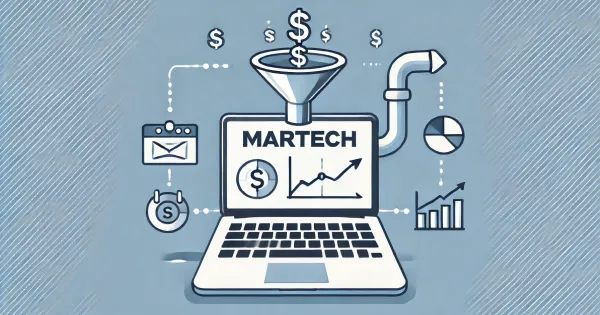5 Reasons Patience is Important in Business

People in the business world often want fast results and quick decisions. Because of this, the idea of being patient can seem old-fashioned or out-of-date. However, patience is actually one of the most important qualities for achieving long-lasting success with any business.
Being patient in business means more than just waiting. It involves making wise, strategic plans and staying calm when facing difficulties. This article will explain the deep importance of patience in business. It will show how patience can turn challenges into opportunities and prevent rushing into decisions that don't lead to good outcomes.
Reason 1) Long-term Strategy Development

Strategic Patience for Sustainable Growth
Market Cycle Comprehension:
- In-depth Market Analysis: Businesses operate in a world of fluctuating economic conditions. A patient approach enables leaders to comprehend these cycles, making decisions that are not reactive but rather informed by trends over time. This deep understanding of market dynamics allows for more calculated moves and aligns short-term actions with long-term objectives.
- Anticipating Market Shifts: Patience facilitates a proactive rather than reactive strategy, helping businesses anticipate changes and prepare accordingly, thus avoiding the pitfalls of sudden market disruptions.
Investment in Research and Development:
- Long-term Commitments: In sectors where innovation is critical, such as biotechnology and digital technology, the research and development phase can extend over years. Patience in these stages ensures that new products or technologies are thoroughly refined and ready to meet rigorous market demands, thereby reducing the risk of premature launch failures.
- Sustainable Innovations: By investing time in research and development, companies can create sustainable solutions that don’t just respond to current needs but also anticipate future market demands.
Strategic Resource Allocation:
- Calculated Investments: Patiently allocating resources to different areas of the business, such as new market development, technology upgrades, or workforce training, might not yield immediate financial returns but sets the stage for future profitability and stability.
- Building Capacity for Growth: Strategic patience in resource allocation allows businesses to build their capacity gradually and sustainably, ensuring that growth is manageable and aligned with the company's long-term vision.
Case Study: Examine how leading tech companies manage their investments in emerging technologies. Their long-term orientation enables them to lead in innovation and market expansion, often setting industry standards and trends.
By investing in long-term strategic development, businesses position themselves to capitalize on future opportunities effectively and sustainably. This approach not only enhances their competitive edge but also ensures that they remain relevant.
Reason 2) Building Strong Relationships

Patience as a Foundation for Trust and Loyalty
Client Relationships:
- Understanding Needs and Expectations: Patience allows businesses to truly understand and meet their clients' needs. By taking the time to listen and adapt to feedback, companies build a reputation for being client-centric, which enhances trust and loyalty.
- Long-Term Engagements: Patience builds stronger, long-lasting client relationships. Clients appreciate when companies view their interactions as long-term partnerships rather than short-term transactions, which often leads to repeat business and referrals.
Internal Relationships:
- Team Development: Developing effective teams takes time. Patience in training and mentoring allows employees to fully understand their roles and grow within them, contributing positively to the business.
- Conflict Resolution: In any business, conflicts will arise. A patient approach to conflict resolution, considering all perspectives and finding mutually beneficial solutions, helps maintain a harmonious work environment.
Stakeholder Engagement:
- Investor Relations: Investors need to feel confident in their investment. Patient communication of business strategies and challenges helps build this confidence, even during periods of lower-than-expected growth or unexpected setbacks.
Case Study: Look at companies with high customer loyalty and employee retention rates. Their patience in building these relationships often translates into higher profitability and industry respect.
Encouraging a Culture of Respect and Understanding
- Cultural Sensitivity: In a global market, understanding diverse cultural backgrounds and practices takes patience, but is crucial for international success.
- Feedback Loops: Establishing effective feedback mechanisms requires patience both in gathering insights and implementing changes. This process reinforces a culture of continuous improvement and respect.
By taking the time to develop robust relationships both inside and outside the company, businesses not only enhance their immediate environment but also secure a foundation for future growth and stability.
Reason 3) Handling Uncertainty and Setbacks

Navigating Business Uncertainties with Patience
Risk Management:
- Strategic Responses: In uncertain economic times, a patient approach allows businesses to assess situations thoroughly and respond strategically rather than reactively. This careful consideration helps mitigate risks associated with rushed decisions.
- Adaptability: Patience is key in adapting to changing market conditions. It provides the space to analyze trends, anticipate potential issues, and adjust strategies accordingly.
Learning from Failures:
- Iterative Learning: Every setback offers a learning opportunity, but it requires patience to analyze what went wrong and how to improve. This iterative process is fundamental in industries like tech startups, where rapid innovation cycles are common.
- Building Resilience: Patience helps build organizational resilience by encouraging a mindset that views setbacks not as failures, but as steps towards success.
Case Study: Reflect on global companies that have successfully navigated recessions or market crashes. Their patience in strategic planning and execution often allows them to emerge stronger and more prepared for future challenges.
The Role of Patience in Crisis Management
- Crisis Planning and Execution: Effective crisis management involves patient, thoughtful planning and execution, ensuring that every action taken is measured and contributes to a comprehensive response.
- Communication: During crises, transparent and patient communication with stakeholders, including employees, customers, and investors, is critical. It helps maintain trust and stability.
By maintaining a patient approach during times of uncertainty and setbacks, businesses not only preserve their current standing but also enhance their capability to thrive in the future. This approach ensures that they are better prepared for similar challenges.
Reason 4) Creating a Positive Company Culture

The Impact of Patience on Organizational Climate
Enhancing Employee Satisfaction:
- Professional Growth: Patience in employee development, such as allowing time for new skills acquisition and career progression, directly contributes to job satisfaction and loyalty. Employees feel valued when companies invest time in their growth.
- Mentoring Programs: Implementing effective mentoring programs requires a patient approach, from matching mentors and mentees to measuring outcomes. These programs often yield significant benefits in terms of employee engagement and knowledge sharing.
Reducing Turnover:
- Patient Onboarding: A thorough and patient onboarding process ensures that new hires are well-integrated into the company culture and fully understand their roles, which decreases early turnover rates.
- Handling Work-Related Stress: Patient leadership can set the tone for the entire organization, promoting a less stressful environment by prioritizing well-being and balanced workloads.
Case Study: Companies renowned for their corporate culture, like some famous tech giants, often have detailed, patient approaches to human resource management. Their high employee retention rates and frequent rankings as top places to work highlight the effectiveness of these strategies.
Creating an Environment of Trust and Cooperation
- Open Communication Channels: Patience creates an atmosphere where employees feel safe to express ideas and concerns without fear of immediate dismissal or retaliation. This open communication leads to innovative ideas and solutions.
- Team Collaboration: Encouraging teams to work through challenges together patiently can strengthen bonds and improve collaborative efforts, leading to better project outcomes and a more cohesive work environment.
The patient building of a positive company culture not only enhances internal operations but also boosts the company's external image, attracting top talent and building customer trust.
Reason 5) Encouraging Innovation and Creativity

The Role of Patience in Driving Innovation
Creating a Supportive Environment for Experimentation:
- Time for Creativity: Innovation often requires time to think and experiment without the pressure of immediate results. Patience allows for a more exploratory approach, where ideas can be tested and refined as needed.
- Support for Long-Term Projects: Many breakthrough innovations are the result of long-term projects that don’t yield immediate financial returns. Companies that are patient in their support of these projects are often at the forefront of their industries.
Fostering an Innovative Mindset:
- Encouraging Risk-Taking: A patient approach to business encourages employees to take calculated risks, knowing that failure is seen as a part of the learning process rather than a setback.
- Iterative Development: In fields like software development, the iterative process relies heavily on patience, as products go through multiple rounds of testing and feedback before final release.
Case Study: Consider the development of revolutionary products in the tech industry, such as smartphones and electric cars. The companies behind these products invested years of patient research and development to achieve innovations that significantly impacted the market and society.
Cultivating Creativity Through Patience
- Workshop and Training Sessions: Regularly scheduled creative workshops that allow for unhurried exploration of new ideas can foster a culture of creativity. These sessions provide the tools and time necessary for innovation.
- Rewarding Creative Successes and Efforts: Recognizing and rewarding both the outcomes and the creative process encourages a continuous flow of innovative ideas. This recognition reinforces the value of patient effort and creativity within the company.
By valuing patience, businesses not only enhance their current product offerings but also position themselves as leaders in innovation for the future. This strategic focus on creativity and long-term development is crucial for staying competitive in rapidly changing markets.
Final Thoughts
There is always pressure to get fast results, however, being patient is actually a smart advantage for businesses. Patience provides benefits in developing long-term plans, building strong relationships with others, dealing with uncertain situations, creating a positive work environment, and driving innovation. Companies that embrace patience experience sustained growth over time, better relationships with stakeholders, and a reputation for leadership and reliability.
Being patient in business does not mean being inactive. Instead, it means choosing the right time to take action, ensuring every decision is well thought-out and every action aligns with the broader strategic goals. As seen through various real-world examples, patience significantly improves a company's ability to thrive and adapt as the marketplace keeps evolving. For any business looking to create a lasting legacy, fostering a culture of patience is truly a wise investment.
Key Takeaways
| Reason | Key Takeaways |
|---|---|
| 1. Long-term Strategy Development | - Patience improves decision-making and innovation. |
| 2. Building Strong Relationships | - Patient relationship-building enhances trust and team dynamics. |
| 3. Handling Uncertainty and Setbacks | - Patience in crisis management leads to better risk handling. |
| 4. Creating a Positive Company Culture | - Patience in HR practices boosts employee satisfaction. |
| 5. Encouraging Innovation and Creativity | - Time and support for experimentation drive innovation. |







